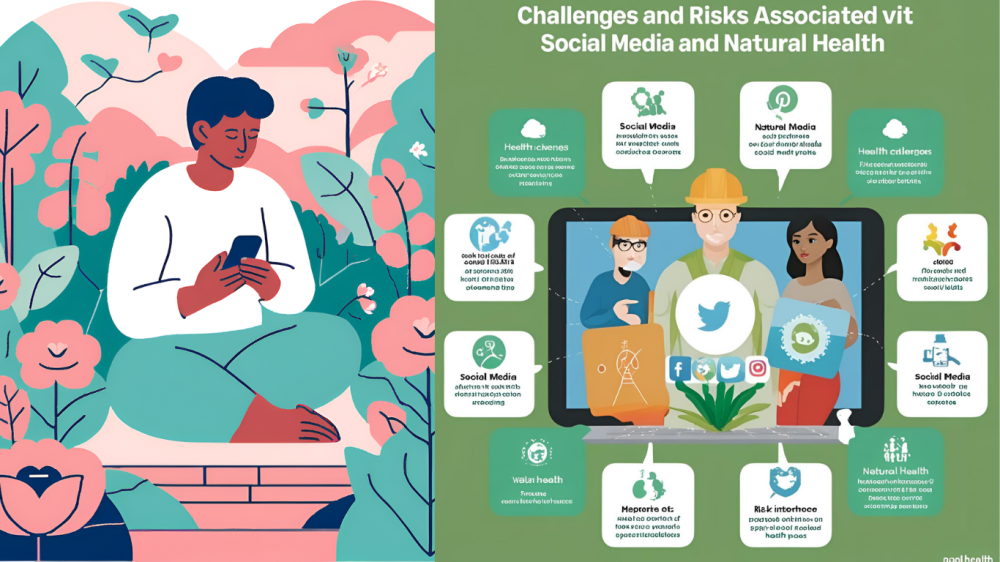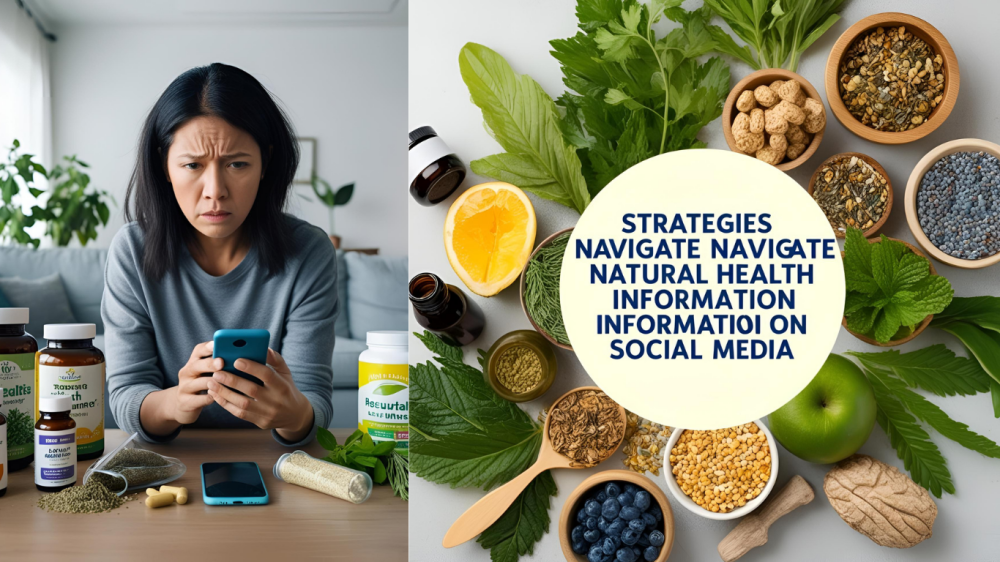
Natural health perceptions have undergone a significant transformation with the advent of social media. Historically, natural health practices were passed down through generations within communities, often based on traditional knowledge and herbal remedies. Today, these same practices are being disseminated on a global scale via social media platforms.
Influencers and opinion leaders play a crucial role in this shift. They often have large followings, and their endorsements of natural health products and practices can reach millions in seconds. Whether it’s a fitness guru promoting a new superfood or a lifestyle blogger sharing their experiences with essential oils, these figures can dramatically influence public perceptions and behaviors.
Social media has become a powerful vehicle for spreading both awareness and misinformation. Platforms like Instagram, Twitter, and Facebook are flooded with content related to natural health, ranging from educational posts to less reliable advice. The sheer volume of information available can make it challenging for users to discern credible sources from dubious ones.
Holistic health communities have thrived online, creating spaces where individuals can share experiences, seek advice, and support each other on their health journeys. These communities often foster a sense of belonging and empowerment, making natural health practices more mainstream and accessible. However, they also come with the risk of echo chambers, where unverified or harmful practices can be propagated without critical examination.
Considering the historical context and the modern digital landscape, it’s clear that social media has profoundly impacted how natural health is perceived and practiced today. While it has opened up new avenues for learning and connection, it also requires vigilance to navigate the tides of information correctly. Utilizing social media responsibly means actively seeking out trustworthy voices and staying informed about the potential for misinformation.
Positive Impacts of Social Media on Natural Health Awareness

Social media has played a pivotal role in making natural health information more accessible than ever before. No longer confined to specialized books or local health practitioners, knowledge about natural remedies, wellness routines, and holistic practices is now available with a few taps on a smartphone or clicks on a computer.
One of the most powerful benefits is the promotion of healthy lifestyles and preventive care. Platforms like Instagram and YouTube are filled with influencers and experts who share tips on nutrition, exercise, mindfulness, and more. This wealth of information encourages individuals to adopt healthier habits and stay proactive about their well-being.
Community support is another significant advantage. Online groups and forums dedicated to natural health offer a space for people to share their experiences, ask questions, and learn from one another. This sense of community can be incredibly supportive, especially for those who might not have access to local groups or in-person consultations. It also helps to normalize a variety of natural health practices, making them more approachable for newcomers.
Empowerment through knowledge is a crucial aspect of this positive impact. With so much information readily available, individuals are better equipped to make informed decisions about their health. They can explore different natural health modalities, compare products, and find what works best for their unique needs, all while feeling more in control of their wellness journey.
Social media, despite its flaws, has undeniably contributed to a broader understanding and acceptance of natural health. By offering easy access to information, fostering supportive communities, and empowering individuals with knowledge, it has played a vital role in the natural health movement.
Challenges and Risks Associated with Social Media and Natural Health

While social media has many benefits, it also presents significant challenges and risks in the realm of natural health. One of the primary concerns is the spread of misinformation and unverified health claims. It’s easy for misleading or false information to go viral, especially when shared by trusted influencers or popular accounts. This can lead to individuals taking actions based on inaccurate or potentially harmful advice.
Another major pitfall is the danger of self-diagnosis and self-treatment. Individuals might be tempted to diagnose their own health conditions based on information they come across online. This can delay proper medical treatment and may lead to complications if serious conditions are misinterpreted as minor issues.
Commercial interests and sponsored content also play a significant role. Health-related advice and product endorsements might be driven more by financial gain than genuine benefit. It’s not always clear when content is sponsored, which can muddy the waters of credibility. Users need to be cautious and critical about the intentions behind the advice they encounter.
Addressing the digital divide is another important aspect. Not everyone has equal access to the internet or digital literacy skills, which can create disparities in who benefits from the natural health information available online. Those with limited access may miss out on valuable insights or fall prey to less reliable sources because they can’t cross-check the information easily.
Navigating these risks involves staying vigilant and informed. It’s crucial to cross-reference information, consult healthcare professionals, and be skeptical of too-good-to-be-true claims. By approaching natural health content on social media with a critical mind, users can better protect themselves from potential pitfalls.
Strategies to Navigate Natural Health Information on Social Media

Identifying credible sources is crucial when consuming natural health content online. Look for information from reputable organizations, accredited experts, or well-reviewed studies. Verified accounts and professional endorsements are good starting points.
Fact-checking and cross-referencing are essential practices. Don’t rely on a single source for health advice. Compare information across multiple reliable platforms to ensure accuracy. This can help you separate genuine advice from misleading claims.
Consulting with healthcare professionals should never be overlooked. While social media can provide valuable insights and tips, it’s not a substitute for professional medical advice. Combining online information with guidance from healthcare providers ensures a balanced approach to natural health.
Building a balanced and informed approach involves staying updated yet critical. Follow a mix of established health experts and evidence-based content creators. Engage with the community, but always verify before acting on any health recommendations. This balanced strategy helps you benefit from the wealth of information while shielding against its risks.


Recent Comments